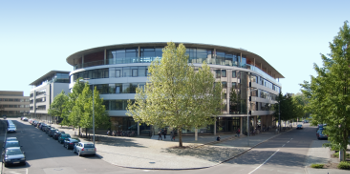From Homo Economicus towards a Caring Economics
The aim of this research program, funded by the Institute for New Economic Thinking (INET), is to explore new avenues of how psychological and neuroscientific knowledge about human motivation, emotion and social cognition can inform models of economic decision making in addressing global economic problems. In particular, the program seeks to generate a new generation of economic models that explore the opportunities for more cooperative, pro-social and sustainable economic behaviors. This research aims at providing a new vision of a "caring economics."
The Kiel institute for the World Economy and the Department of Social Neuroscience at the build a multi-disciplinary collaboration that questions fundamental assumptions of mainstream economic models, such as context-independent andstable preferences, means-end rationality, and strictly individualistic and self-interested decision making. We assume that all behavior is motivated and explore how external and internal conditions can activate different, discrete motivational systems that can in turn prime different sets of behavior patterns. Hereby, we also focus on studying the plasticity of motivational systems in exploring possibilities for changing preferences through mental training. Additionally, the research explores the interdependence and sociality of humans. We suggest that the traditional conception of homo economicus needs to be replaced by a new conception of homo relationis, namely, individuals who are linked to one another through personal relationships and their capacity for empathy and compassion. This new conception suggests that people are capable of intrinsically pro-social behaviors, enabling them to cooperate in ways that standard economic theories ignore. Finally, we are also interested in working on new micro- as well as macro-economic models of cooperation including also the perspective of biological evolution.
To achieve these goals, a group of researchers in psychology, neuroscience, economics and related fields will work together using a variety of conceptual, mathematical as well as experimental approaches.
Find guides and information about modern economics here - aktienyheterna.se.


